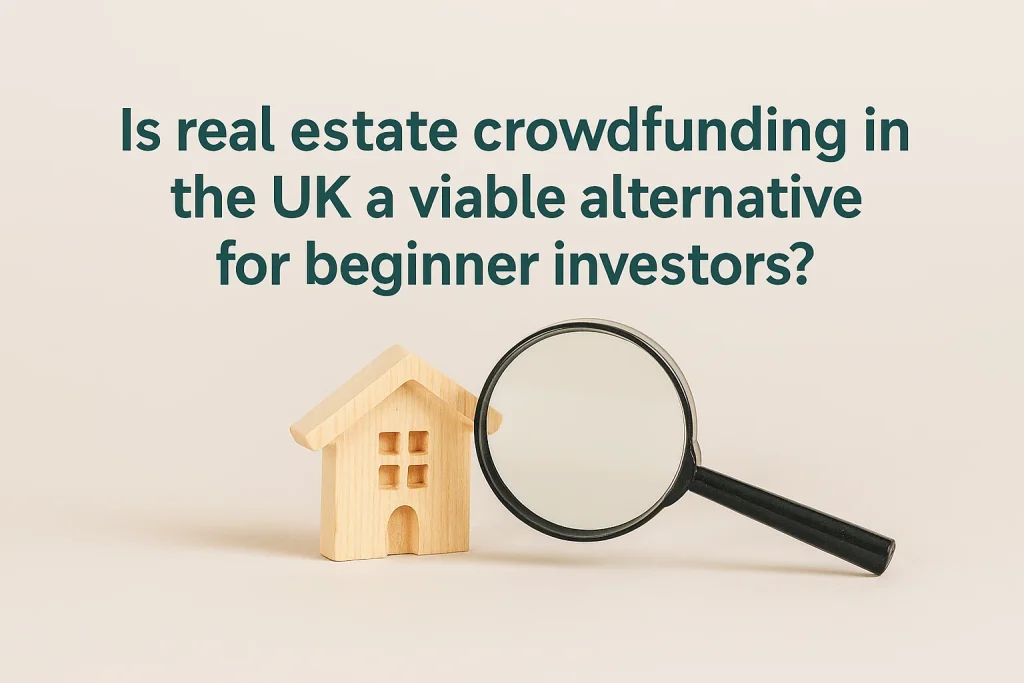Real estate has always been considered one of the most reliable and profitable long-term investments, but for many beginner investors, the barriers to entry have historically been too high. Traditional property investing often requires significant upfront capital, access to financing, and the ability to manage tenants or deal with market fluctuations.
In the UK, a new model has emerged in the past decade to address these challenges: real estate crowdfunding. This form of collective investing allows individuals to participate in property projects with much smaller amounts of money, creating opportunities that were previously restricted to wealthier investors.
How real estate crowdfunding works

Real estate crowdfunding in the UK typically functions through online platforms that connect developers or property managers with retail investors. These platforms host investment opportunities such as residential developments, commercial projects, or buy-to-let portfolios.
Unlike direct property ownership, crowdfunding eliminates the need for investors to engage in day-to-day management. Instead, professionals handle property acquisition, leasing, and maintenance, while investors track performance via the platform. However, the model involves inherent risks, including potential project failure, lower-than-expected returns, and market downturns.
Benefits for beginner investors
For those just starting out, real estate crowdfunding offers several compelling advantages. First and foremost, it reduces the capital barrier, making it possible for individuals without large savings to participate in the property market. This accessibility is particularly important in the UK, where rising house prices have excluded many from traditional property investment routes.
Crowdfunding also provides a simple entry point into diversification. Beginners can spread smaller amounts of money across multiple projects, reducing exposure to risk compared with investing all their savings into one property. Some platforms, such as Property Partner, even allow investors to trade shares of property holdings, adding liquidity to what is usually a highly illiquid asset class.
Potential risks and limitations
Despite its benefits, real estate crowdfunding is not without significant drawbacks. Perhaps the most pressing concern is the lack of regulation compared with traditional investment vehicles. While the Financial Conduct Authority (FCA) does oversee crowdfunding platforms in the UK, investor protection is more limited than in mainstream financial products.
Market volatility also poses a risk. Just like traditional property investments, crowdfunding returns depend on broader economic factors such as interest rates, rental demand, and housing supply. In downturns, projects may fail to deliver expected yields, leaving investors disappointed.
Comparing with traditional property investment
To understand whether real estate crowdfunding is truly viable, it is essential to compare it with traditional property investment. On one hand, crowdfunding offers unmatched accessibility, lower entry costs, and reduced responsibilities. This makes it ideal for beginners who wish to experiment with property exposure without overcommitting.
On the other hand, traditional property investment provides direct ownership and control, which can translate into higher profits if managed well. Property owners benefit from capital appreciation, rental yield, and the ability to leverage financing. While the responsibilities are greater, so too are the opportunities for wealth building over the long term.
Is it a viable alternative for beginners?
Ultimately, the viability of real estate crowdfunding in the UK for beginner investors depends on individual goals, risk tolerance, and financial resources. For those who lack the capital or expertise to purchase property directly, crowdfunding represents a practical stepping stone into real estate. It enables newcomers to learn about the property market, gain exposure with minimal commitment, and benefit from professional management.
However, beginners should approach with caution, recognising that crowdfunding is not a guaranteed path to success. Careful platform selection, diversification across projects, and realistic expectations are crucial. Crowdfunding should be seen as a complement to, rather than a replacement for, other investments. It can serve as an educational tool and a gateway into more substantial property ventures later on.





